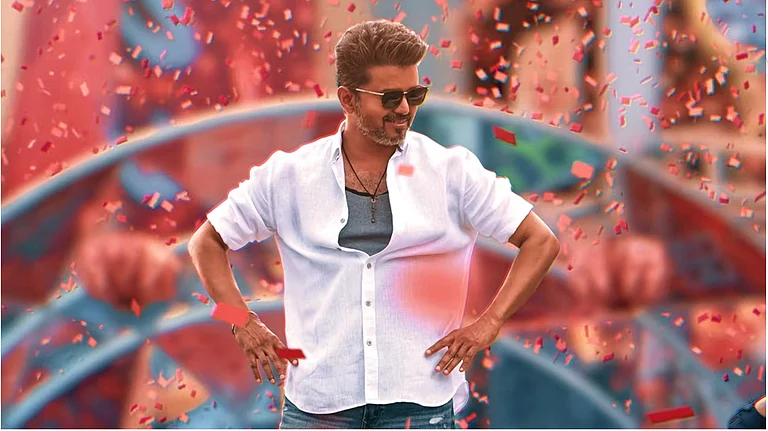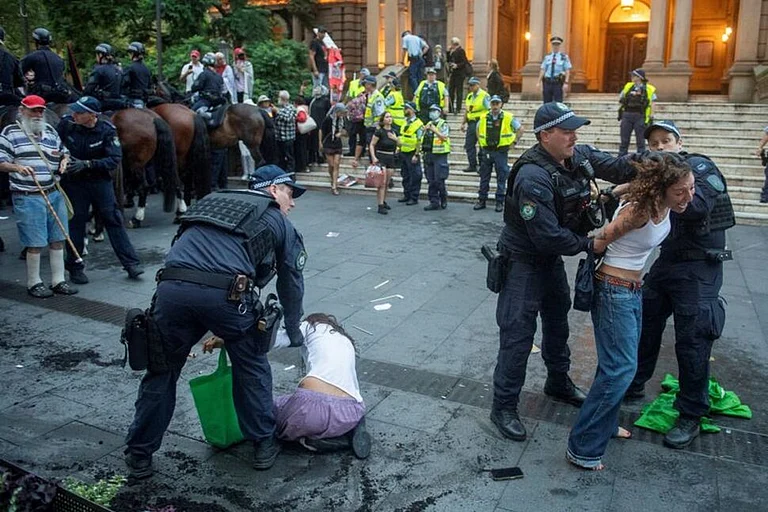IT is suggested that I have a discussion with some Hurriyat leaders in view of my dabbling in political journalism. I readily agree. At the meeting, I shake hands with a man in his late 30s, bearded, of swarthy mien, serious in deportment, and elaborately courteous in his conversation. This is Shabir Shah, who, according to recent opinion polls conducted in the Valley, is the most popular leader there. He is in Delhi in connection with the opening of what the Hurriyat calls the "Awareness Bureau". Simply put, it is the Hurriyat's branch office in Delhi. The Bureau was inaugurated on November 4. I wonder about the Hurriyat's intention in opening an office in Delhi; about its views on increasing Pakistani assertiveness on Kashmir; how they react to Narasimha Rao's bid to hold elections in Jammu and Kashmir by the end of 1995; how they assess the state's prospects.
Even before I start, Shabir Shah says: "You are a buzurg, you have much experience in Indian and global politics and you are deeply knowledgeable about problems affecting Kashmir (a completely inaccurate assessment, if you ask me!). I am privileged to meet you. I want to listen to you and learn." I am a little nonplussed. I tell him I have come to know his views, not to pontificate. We meander through preliminary courtesies, then I request him to let me know his response to my curiosities.
Shah is measured and precise in his reaction. His views are: "It would have been wise and practicable if Rao's advisors had first held consultations with the Hurriyat and other groups, and not just Farooq Abdullah and Ghulam Rasool Kar. Neither Farooq nor Kar, or their parties have any credibility. Participation in a poll and their being put in power on its basis would be an imposition and a farce. This would be a negation of the aspirations of the Kashmiris and an insult to their sentiments."
Shah acknowledges that New Delhi can conduct the poll despite general opposition and create a "pretended democratic government". The voting percentage would be lower, perhaps even lower than the number of votes cast during the Punjab election. Elections would be accompanied by tension and bloodshed. And six months down the line, the Valley would be back to square one in terms of violence, increased Pakistani interference and disruptions. This would benefit no one.
I ask him, if he acknowledges that an elected government is possible, why don't they join the mainstream and, if they win, they can negotiate from a position of democratic strength? He says: "This is possible but it is a matter of conscience and political conviction. Elections mean swearing allegiance to the Indian Constitution. It will be wrong to be elected, and then repudiate this oath. Kashmiris want a discussion on constitutional arrangements and the future status of Kashmir."
I tell him, his response means an impasse. I ask him what is the way out. He says the Centre should enter into a substantive discussion with the genuine leaders of the Kashmiris who are represented in the Hurriyat. Shah says the Hurriyat is willing to enter into such direct negotiations with the Centre with an open mind and "without any preconditions". It would also like representatives of Kashmiris from across the Line of Control to join them in discussions with the Government of India if the latter accepts this suggestion.
Shah says that Rao talked about "the sky being the limit as far as autonomy is concerned". But actual suggestions for autonomy along with the decision to hold polls are half-hearted, harking back to the 1975 proposals. This is totally inadequate and unacceptable. The Centre's insistence that any reconciliation should be strictly within the framework of the Indian Constitution is too rigid a precondition.
I tell him Kashmir is no longer an issue limited to the geographical limits of the old princely state and that it affects the future of 900 million people of India. He agrees, and says discussions for a compromise or via-media will take time; all concerned have to be patient. The Hurriyat is willing to be patient and to take time in reaching an amicable solution. At some stage, Pakistan will also have to be brought into the discussions so that it does not sabotage the process, he says.
Shah feels New Delhi is unwilling to respond to the Hurriyat. He expresses happiness that the "Bureau in Delhi will educate the Indian public, and the world—through the diplomatic missions and the foreign journalists there".
He concludes by saying: "I'm an insignificant person but I'm clear about my political conviction and I am willing to learn and to talk. I have no messages from Bada Rao Saheb (the Prime Minister) and Chota Rao Saheb (the Governor) indicating that they will talk to us. One wants to hold elections, and the other threatens resignation if elections are not held. Should they not ask as to what should be done for the well-being of the long suffering people of Kashmir?"
I tell him that being a private citizen I have only a private answer. That New Delhi should have discussions with all state parties. Shah leaves me with an impression of idealism and reasonableness facing the elemental forces of India's volatile politics. I hope his voice will be heard and there is a response. There is no substitute to reasoning together.


























